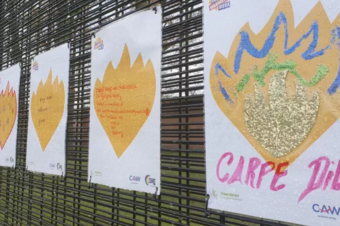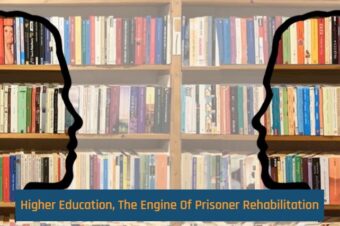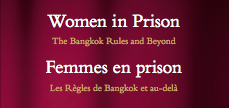We, the new editors of the EPEA newsletter, chose Jan de Cock to start our section of interviews because he is a source of inspiration for a lot of people, whether you are a teacher, a psychologist, an officer, a director. Everyone can find himself in his stories and can get a boost of energy and motivation. Keep on reading and you’ll find out why.
See the interview
Jan, tell us a little bit about you. Who you are, what your job is, how long you have been doing it…
World citizen, chocolate lover, spiritual counselor in a hospital and coordinator of Without Walls. In a previous life I was a teacher but after two years of teaching in Belgium I left as a development worker to Latin America and Africa. Working with glue-sniffing street children, I tumbled into prisons. My first prison contacts were with political prisoners during the dictatorship in Chile. I currently work part-time in a hospital – mainly in palliative care – and part-time with perpetrators and victims.
When and how did you realise your place was in prison? Why does the world of prisons “attracts” that much that you wrote two books about it?
My life – the nest in which I grew up, my passion for beauty and harmony – was at odds with the prison world. Never thought I would ever feel at home there! And let it be clear: the filth and sadness of prisons still repel me. But it is the person behind bars and walls that fascinates me. When I came into contact with him, I soon discovered that our lives (that of perpetrator, victim, other civilians) were intertwined. We can only build that just and more equal world if we stay connected with each other. We must ‘be restored’ together. To help prove that every human being is more than his worst act and because I wanted to understand even better what it is to be deprived of your freedom, I traveled the world to stay in prisons. Until then I had worked voluntarily in prisons but rarely had eaten there and never had slept there. The first night during my world trip in a prison in Rwanda changed my life forever. I call for every lawyer, every judge, every prison warden, every caregiver, every prison teacher to spend several days and nights behind bars. Because that rarely happens at the moment, I already invite people through reading books (Hotel Prison, Hotel Pardon) to put us in the shoes of prisoners. And victims.
Please, share with us one of your most heartwarming stories related to prison.
When I was in the Itaùna prison in Brazil, I shared the cell with Dyego. He had been there for five years for the murder of a taxi driver. For the past two years, he has had a weekly visit from … the taxi driver’s family. What had happened? Dyego learned in prison that the widow was suffering from a life-threatening kidney disease; the only outcome was a kidney transplant. No suitable donor was found in the entire province of Minas Gerais. Dyego underwent medical testing and was found to be compatible. He donated a kidney to the widow of the man he murdered years before.
Jan, What do you think should be the main objective of education in prison?
Just like the objective of education tout court, education in prisons should be above all this: developing the capacity to empathize with someone else. Self-development is always in function of others: you are needed for a better world. All courses, trainings and workshops – be it cooking, languages or computer programs – transform a person into a better fellow man. It trains your capabilities and broadens the opportunities for the labor and other markets. This is crucial for every teacher: does my transfer of knowledge and skills contribute to the happiness of this prisoner, of this person sitting in front of me?
From your point of view, where do you see the greatest need for reform in the prison system? Or the other way round, in your opinion which would be the cornerstones of a better prison system?
When I was studying to be a teacher, ‘differentiation’ was fairly new. Little by little, the concept ends up on the work table of prison reformers. We have to get away from that unitary saucisse: several square meters for 700 prisoners with crimes as varied as llamas and penguins in Chile (petty theft, fraud, sex crimes, drug offenses, rape, …). Tailor-made care is a must. For that we have to go to a small scale. Little prisons, what am I saying, little houses. Most prison charters state that inmates have the same rights as all other citizens, notwithstanding their freedom. Then watch over their health care! Watch over their nutrition! Over their hobbies and sports, their relationships, their sexuality! Their education!! Studies have long proven that these investments yield more than high walls and a thousand cameras. It is our duty to be more aware of the enormous potential of talent that prisoners harbor. Invest in training prison staff and involve the inmate’s family and friends in the recovery program. As a member of Without Walls, my heart goes out to all that includes restorative justice, like possible encounters for recovery with the victim.
On an extra personal note: create ‘quiet spaces’ in prisons where people can catch their breath, where the spiritual dimension of prisoners can be addressed, where attention is paid for what transcends us.
Jan, would you come tell us about your travels and experiences in prison all over the world in some future EPEA conference?
My pleasure. That is, if I am not locked up in a prison at the time 😊
Dear Jan, thank you very much for this very personal and inspiring interview.
See you at the next EPEA Conference!




